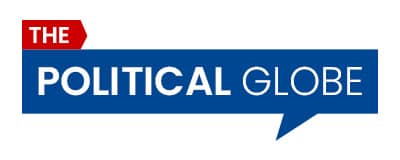
As concerns mount over a mysterious pneumonia outbreak in China, there is a growing chorus among U.S. lawmakers urging the administration to take decisive action to safeguard American health. The situation has become increasingly alarming as reports indicate that this respiratory ailment is not caused by a new virus, but rather a confluence of pathogens, including mycoplasma—a bacterium known for causing lung infections.
The first paragraph of our article would set the stage, highlighting the urgency of the situation and the calls from legislators for a travel ban. It would emphasize the need for precautionary measures to protect public health in the United States.
JUST IN: Senators Call on Biden to PROHIBIT TRAVEL FROM CHINA Amid Concerns Over Unknown Pneumonia Outbreak..
DEVELOPING..
Republican senators are urging the United States to swiftly implement a travel ban from China in response to the escalating child pneumonia outbreak that… pic.twitter.com/79o54wLH6Z
— Chuck Callesto (@ChuckCallesto) December 1, 2023
In the second paragraph, we would delve into the specifics of the outbreak, noting the lack of routine testing for mycoplasma and the difficulty in obtaining accurate case numbers. The focus would be on the potential risks posed by underdiagnosed conditions and the importance of vigilance.
The third paragraph would describe the clinical presentation of the illness, referencing the ‘white lung syndrome’ or acute respiratory distress syndrome, which is characterized by white spots or opaque areas in the lungs. This would serve to illustrate the severity of the condition and the need for immediate attention.
🚨Chinese Travel Ban?🚨
GOP Senators just sent this letter to @JoeBiden, calling on him to immediately issue a TRAVEL BAN between the United States & the People’s Republic of China (PRC).
The letter comes as China’s mystery “pneumonia” has now made its way to the United States. pic.twitter.com/Xo651QVL08
— Laura Loomer (@LauraLoomer) December 1, 2023
The fourth paragraph would bring in the perspective of medical experts, such as Dr. Amesh Adalja from Johns Hopkins University, who explains the cyclical nature of mycoplasma and its tendency to hit in waves every few years. This expert opinion would provide context to the global phenomenon and the lowered immunity against seasonal illnesses due to pandemic restrictions.
In the fifth paragraph, we would explore the impact of these lowered immunities, particularly in China, where stringent lockdowns were implemented. The connection between these measures and the current outbreak would be examined, with an emphasis on the vulnerability of children who missed out on early social interactions that build natural defenses against infectious diseases.
The sixth paragraph would shift the focus to the United States, where similar rises in pneumonia cases have been reported, particularly in Western Massachusetts and Warren County, Ohio. The narrative would underscore the bipartisan concern for the health of Americans and the economy.
The seventh paragraph would address the skepticism surrounding the Chinese government’s transparency regarding the outbreak. It would highlight the historical context of past health crises and the strategic imperative for the U.S. to act independently to protect its citizens.
In the eighth paragraph, we would discuss the implications of the outbreak on the global stage, noting the spread of ‘myco’ cases in parts of Europe and the potential for a similar situation in the U.S. The paragraph would argue for proactive measures rather than reactive responses.
The ninth paragraph would present the argument for travel restrictions, detailing the proposal by U.S. senators to limit travel between the United States and the People’s Republic of China until more information about the illness is available. The rationale would be based on the need to preemptively secure the nation’s health infrastructure.
Finally, the tenth paragraph would conclude the article by reiterating the gravity of the situation and the necessity for the administration to heed the calls for travel restrictions. It would call for a unified approach to prevent the spread of the pneumonia outbreak and to ensure the well-being of the American populace.
In summary, the article would present a conservative viewpoint on the need for immediate and stringent travel restrictions in response to China’s pneumonia crisis, emphasizing national security, public health, and skepticism towards the Chinese government’s handling of the outbreak.













Travel restrictions?????
Our Southern Border is wide open. When will they restrict foreign invaders from coming into the country??